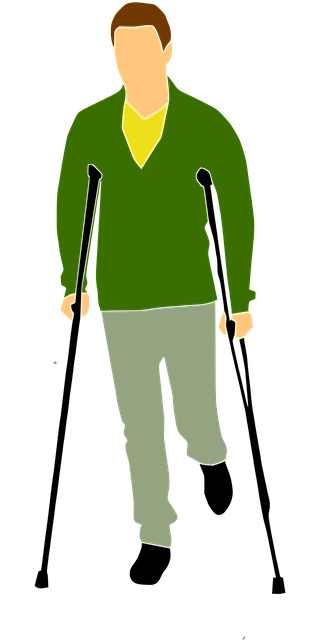Yoga Therapy for Recovery: Integrating Mindful Movement into Addiction Counseling
Yoga therapy offers a holistic relaxation method, combining physical postures, breathwork, and mindf…….
Over 15% US adults have used prescription painkillers not prescribed to them.
Addiction counseling services stand as a cornerstone in the global effort to combat substance abuse and behavioral addictions, offering critical support to individuals striving for recovery. This article aims to provide an extensive exploration of these services, delving into their definition, historical evolution, international reach, economic impact, technological innovations, regulatory frameworks, challenges, and future prospects. By examining these aspects, we gain a holistic understanding of addiction counseling’s role in addressing one of the most pressing health issues of our time.
Definition: Addiction counseling services encompass a range of therapeutic interventions designed to assist individuals dealing with substance use disorders (SUDs) and other addictive behaviors. It involves individual or group therapy sessions, family counseling, education, skills training, and support for maintaining long-term recovery. The primary goal is to help clients understand the underlying causes of their addiction, develop coping strategies, and adopt healthier lifestyles.
Core Components:
Historical Context: The concept of counseling for addiction has evolved over centuries. Early approaches often involved moral persuasion and religious interventions. However, the 20th century saw a shift towards more scientific and evidence-based practices with the emergence of behavioral therapies. Key milestones include the establishment of the first Alcoholics Anonymous (AA) groups in the 1930s, which laid the groundwork for peer support, and the development of CBT in the 1960s, revolutionizing individual therapy.
Significance: Addiction counseling services play a vital role in public health by:
Addiction counseling services have spread worldwide, adapting to diverse cultural contexts and needs. Key trends shaping its global landscape include:
| Region | Trends | Examples |
|---|---|---|
| North America | Increased integration of technology, with telemedicine and mobile apps expanding access. | Online counseling platforms like BetterHelp and Sober Grid offer virtual therapy sessions. |
| Europe | Growing emphasis on evidence-based practices and integrated care models. | The UK’s National Health Service (NHS) promotes CBT and other proven therapeutic approaches. |
| Asia | Rapid urbanization leading to higher demand, with mixed public and private service delivery. | China has implemented national programs to address substance abuse, including counseling services in community settings. |
| Africa | Limited resources and infrastructure hindering access, but community-based initiatives are emerging. | South Africa’s Cape Town Drug Treatment Centre provides counseling and support for various addictions. |
| Latin America | High rates of substance use disorders, with a growing focus on prevention and early intervention. | Brazil’s National Institute on Drug Abuse offers counseling and education programs in schools and communities. |
The economic impact of addiction counseling services is multifaceted, affecting both healthcare systems and societies at large.
Market Dynamics: The global addiction treatment market, including counseling services, was valued at USD 42.3 billion in 2021 and is projected to grow at a CAGR of 7.5% from 2022 to 2030 (Grand View Research). This growth is driven by increasing substance abuse rates, aging populations, and rising awareness of mental health issues.
Investment Patterns: Private equity and venture capital firms have shown interest in addiction treatment providers, leading to mergers and acquisitions. For instance, the U.S. company Centraide Health acquired several counseling centers, expanding its market presence.
Economic System Implications:
Technology has revolutionized addiction counseling services, making them more accessible, interactive, and personalized. Notable advancements include:
Regulatory frameworks governing addiction counseling services vary across regions, reflecting cultural and societal norms.
Licensing and Certification: Most countries require counselors to be licensed or certified, adhering to specific educational and training standards. The U.S., for instance, has state-level licensing boards, while many European nations operate under a centralized system.
Reimbursement Policies: Healthcare systems’ reimbursement policies play a crucial role in access and sustainability. In some countries, counseling services are fully covered by public health insurance, while others may offer limited coverage or require out-of-pocket expenses.
Legislative Frameworks:
Despite its benefits, addiction counseling services face several challenges:
Actionable Solutions:
This clinic implemented a comprehensive addiction treatment program integrating individual counseling, group therapy, and family involvement. Their key strategies include:
Phoenix House operates a network of residential treatment centers, offering long-term counseling and recovery services. Their innovative approaches include:
Samaritans offers a confidential emotional support service, providing counseling over the phone and online chat. Their impact includes:
The future of addiction counseling services holds immense potential, shaped by emerging trends and technological innovations:
Addiction counseling services represent a powerful tool in the global effort to combat addiction and its devastating consequences. This article has provided an extensive overview, highlighting its historical development, international reach, economic impact, technological advancements, regulatory frameworks, challenges, and successful applications. By addressing these aspects, we reinforce the critical role of counseling in supporting individuals on their path to recovery and improved quality of life.
How do I know if I need addiction counseling?
What types of therapy are commonly used in addiction counseling?
Is addiction counseling covered by health insurance?
Can addiction counseling help with co-occurring disorders?
How long does addiction counseling usually last?

Yoga therapy offers a holistic relaxation method, combining physical postures, breathwork, and mindf…….

Holistic addiction counseling offers a revolutionary approach integrating evidence-based therapy wit…….

Nutrition planning services play a vital role in addiction counseling by offering personalized meal…….

Holistic wellness programs provide a comprehensive approach to health by integrating nutrition, exer…….

Addiction counseling services adopting a holistic approach recognize the mind-body connection crucia…….

Setting healthy boundaries is crucial for recovery from addiction, as struggling without them can le…….

Addiction counseling services take a personalized, holistic approach to recovery, combining evidence…….

Healthy relationships are built on a foundation of respect, trust, and open communication. This arti…….

Mental health crises, including anxiety, depression, and psychosis, are unpredictable but universal……..

Healthy boundaries coaching is a vital component of addiction counseling services, empowering indivi…….